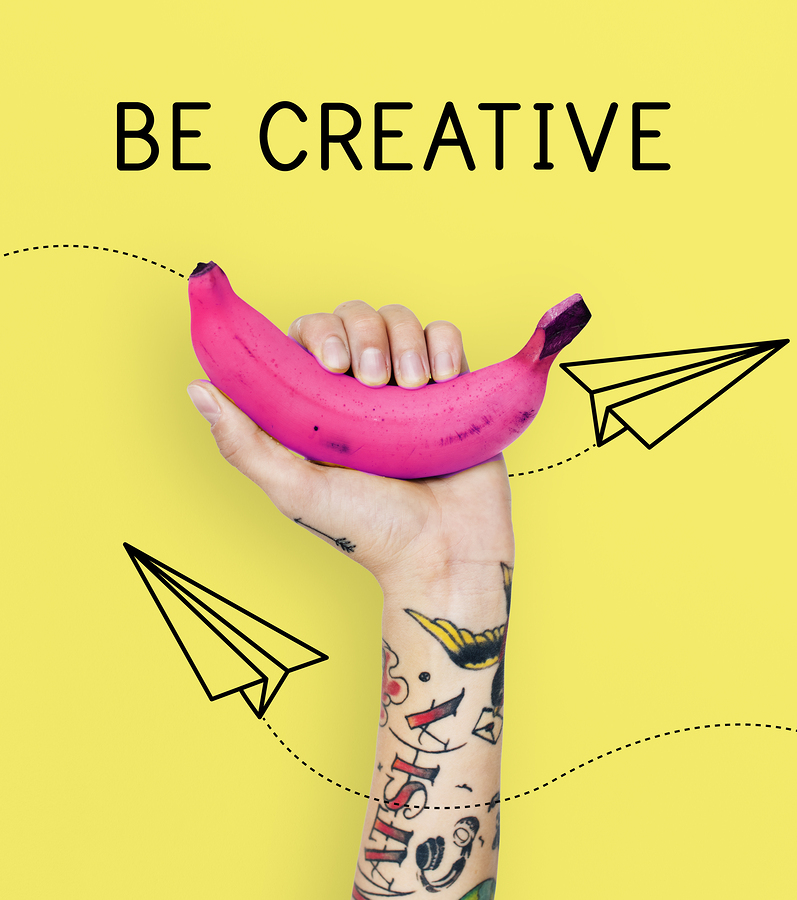Have you ever had that, “I’m in over my head and they’re going to find out feeling?” If so, join the club!
There are a number of perfectly good reasons why you and millions of other fully capable people experience the so-called impostor syndrome. And when you understand this, you’re able to see your own impostor feelings in less personal and more situational terms.
For example, one of the factors that fuels impostor feelings is the kind of work you do.
Just ask author Jonathan Safran Foer. After his first novel Everything is Illuminated made the New York Times bestseller list, the then 25-year-old told a reporter, “I can be very hard on myself. I convince myself that I’m fooling people.”
Award-winning author Maya Angelou had far more success under her belt. Yet she too worried that her success is all a big ruse once saying, “I have written eleven books, but each time I think, ‘Uh oh, they’re going to find out now. I’ve run a game on everybody, and they’re going to find me out.”
But it’s not just writers. Being in any creative field makes you more susceptible to impostor feelings than say being an accountant or a dentist or park ranger. In fact, the internet is full of impostor confessions from people in the entertainment industry who, despite much acclaim, still worry about being unmasked.
She may be a bona fide star but as the stakes got higher, Kate Winslet says there were times when she would, “wake up in the morning before going off to a shoot, and think, I can’t do this; I’m a fraud.”
Don Cheadle says when he looks at his work, “All I see is everything I’m doing wrong that is a sham and a fraud.

And following her Oscar win for best actress Viola Davis said, “It feels like my hard work has paid off, but at the same time I still have the impostor, you know, syndrome. I still feel like I’m going to wake up and everybody’s going to see me for the hack I am.”
It doesn’t matter which side of the camera you’re on.
Chuck Lorre is the creator of TV mega-hits Two and Half Men and The Big Bang Theory and many others. Still he explained, “When you go and watch a rehearsal of something you’ve written and it stinks, the natural feeling is ‘I stink.’ I’m a fraud. I need to go and hide.’ The silence is deafening and it’s a horrible experience but it’s humbling and it happens every week. It doesn’t matter how long you’ve done it.”

When he’s on the set Michael Uslan, producer of the Batman movies says, “I still have this background feeling that one of the security guards might come and throw me out.”
And why wouldn’t they – or you?
After all, the very nature of creative work makes everyone more vulnerable to feeling inadequate and even more so if you are not classically trained.
For one, your work is highly public. Not only are you defined by it, but by artistic and literary standards that are completely subjective. How many other occupations do you know where a person’s work is judged by people whose job title is professional critic?
It’s a challenge to maintain a consistent level of confidence when you know you are only as good as your last painting, your last movie, your last book; when even the brightest stars fade quickly, and where success requires that you prove yourself over and over again in ways few others must.
But what if you really have achieved a certain degree of stardom? You might expect to feel more confident. Instead, it can cause you to question yourself even more because the reactions of those around you can be so skewed.
In his book, The Guinee Pig Diaries, A.J. Jacobs said, “When you’re a celebrity, anything that emerges from your mouth that vaguely resembles a joke is cause for gut-busting laughter from everyone within earshot.” With all that adoration it’s only natural to question whether you really deserve all the attention.
Given the nearly universal nature of the impostor feelings among your fellow creative types, what if you were to stop fighting it and instead get with the program?
The reason I’ve included so many impostor confessions from well-known actors here is because evidence of their talent is commonly recognized. Even Meryl Streep, the most Academy Award nominated actor in history, gets cold feet at the beginning of every new project.
In a 2002 USA Weekend magazine interview, Ken Burns asked Streep a simple question, “Will you always act?” Her reply: “You think, ‘Why would anyone want to see me again in a movie? And I don’t know how to act anyway, so why am I doing this?'”
Meryl Streep for crying out loud! If that doesn’t tell you at once how normal and absurd the impostor syndrome is, nothing will.
So What’s a Creative With Impostor Syndrome To Do?

First, normalize impostor feelings.
As esteemed choreographer Martha Graham said, “No artist is pleased. [There is] no satisfaction whatever at any time. There is only queer divine dissatisfaction, a blessed unrest that keeps us marching and makes us more alike than the others.”
When so many of the most acclaimed people on the planet feel like impostors, why wouldn’t you? Instead of berating yourself, do a little happy dance at the blessed unrest that allows you to share the same human insecurity as some of the most talented people of all time.
Next, become consciously aware of the impostor conversation going on in your head. Then reframe it the way a non-impostor would.
For instance, what if you were able to see critical feedback as a form of compliment? That’s not to say it doesn’t hurt, because it does.
But once you’ve licked your wounds, what if you reminded yourself that no one whose opinion matters is going to give you feedback if they didn’t think you were competent enough to use it?
That’s what Walter Cronkite did. While writing for his high school newspaper, the 14-year-old’s confidence was badly shaken when his mentor sat him down and told him a story he’d written was “simply terrible.”

That one comment could have completely squashed his journalistic dreams. Instead, Cronkite says as he gathered up his article and headed for the door he consoled himself by thinking, “Well, he couldn’t be that mad at me if he’s suggesting ways I could do better.”
Some of the feedback you’ll receive in your life will be dead on. But that doesn’t mean there aren’t plenty of critics who will get it wrong. Jack Kerouac, George Orwell, Ann Frank and Sylvia Plath are just a few of the authors whose books were turned down – all by a single publisher.
After Elvis Presley’s first – and last – appearance at the Grand Ole Opry, a producer advised him to resume his previous job as a truck driver.
And following dance legend Fred Astaire’s first audition, a producer famously observed, “Balding, skinny, can dance a little.”
Let’s face it, you don’t like everyone else’s work, so why should you expect everyone to love yours?
A certain amount of criticism and rejection are inevitable. So why not have bit of fun with it? You could…
- wallpaper a room with your rejection letters.
- write a rap song about all of your bad reviews.
- craft a future award speech in which you thank all the admissions officers, hiring managers, casting directors or whoever turned you down (won’t they feel embarrassed)!
Whatever you do, don’t burn those rejection letters or bad reviews. After all they’ll make for great reading when they write your biography!
If you still need help depersonalizing things, try this approach I learned from a couple of Coast Guard Academy graduates.
In advance of their first deployment a senior female commander offered the female cadets some final words of wisdom – and a Q-Tip® to serve as an acronym for Quit Taking It Personally.

Try it yourself. Tape a cotton swab to your bathroom mirror, tuck another inside your desk drawer, or bag. Use it as a visual reminder to quit taking it personally.
Realize too that just because you feel inadequate does not mean you are inadequate. I can practically guarantee that sometime in the next 24 to 48 hours, you will have the opportunity to feel stupid just like the rest of us. It’s called life. The words you use really do matter. You will be amazed at how differently you feel simply by changing your response from, “I am so stupid!” to “Boy did I feel stupid.”
There’s no quick fix for ruminating over a bad performance. Just like with a song you can’t get out of your head, stopping those pesky reoccurring thoughts begins with becoming aware of what’s happening.
Sharing does help. When you talk things through you’ll probably see that whatever you were obsessing about is not as big as you thought.

You can also practice using what psychologists refer to as stop-thought techniques. The moment you realize what’s happening, silently shout STOP. Repeat this as often as necessary. You can also try techniques like tapping on a table or deep breathing.
When the self-blame game begins, consciously call upon your more logical self for a “second opinion.” In other words, the instant the thought, “My performance was so lame,” enters your mind check in to see what the “other side” thinks.
With emotions out of the picture allow your rational mind to counter with, “I’m sure it was better than I’m giving myself credit for.” Even if by objective standards your proposal was weak counter the impulse to self-blame with the rational reminder that, “The more I paint, write, perform (or do anything!), the better I’ll get.”
Third, keep going regardless of how you feel. You can’t wait to feel confident to act. Besides confidence is not some state you achieve. It’s a constant up and down.
That’s why you have to really savor those exhilarating mental high points and forgive yourself for the inevitable lulls. That’s what Tina Fey does. “The beauty of the impostor syndrome,” said Fey, “is you vacillate between extreme egomania, and a complete feeling of: ‘I’m a fraud! Oh god, they’re on to me! I’m a fraud!’ So you just try to ride the egomania when it comes and enjoy it, and then slide through the idea of fraud.
Valerie Young, Ed.D. is an internationally recognized expert on impostor syndrome and author of the award-winning book The Secret Thoughts of Successful Women: Why Capable People Suffer from Impostor Syndrome and How to Thrive in Spite of It (Crown/Random House) now available in six languages. She has delivered her highly solution-oriented talk to over half a million people at organizations like Google, IBM, Merck, Boeing, Procter & Gamble, Facebook, Microsoft, Intel, Chrysler, Blizzard Entertainment, Dell, BP, Deloitte, Ernst & Young, McDonald’s, NASA, the Space Science Telescope Institute, the National Cancer Institute, Society of Women Engineers, and The Conference Board as well as at over 100 colleges and universities in the US, Canada, Japan, Europe, and the UK including Stanford, Harvard, MIT, Princeton, and Oxford. And her career-related advice has been featured in business and popular media outlets on five continents including BBC radio, Yahoo Finance, Newsweek, Time, The Wall Street Journal, The New York Times, O magazine, Fast Company, Science, and many more. You can learn more at ImpostorSyndrome.com
You are welcome to reprint this post with the bio below.



